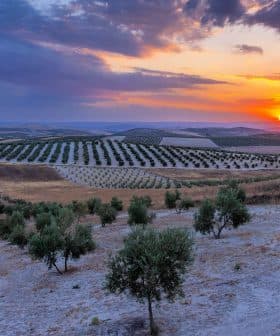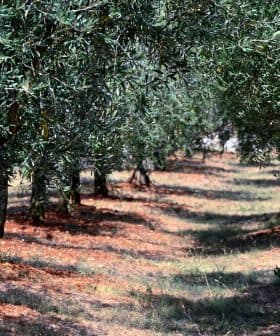Ongoing Battle Over Refillable Bottles in Spain
Efforts continue to ensure that restaurants, hotels and caterers are in compliance with the Spanish Royal Decree that prohibits refilling olive oil bottles. This summer a council in Jaen and a farmers association have taken new measures.
Spain has a strong tradition of using olive oil at every meal, with a focus on quality and authenticity. Recent regulations have required food service establishments to use correctly labeled, non-refillable bottles or one-use packets of olive oil, although many businesses have resisted this change.
Olive oil is served at every meal in Spain. In the morning, expect toast with tomato and olive oil to start the day. For lunch and dinner side salads do not come with a plastic cup of ranch dressing to top that chunk of iceberg lettuce. This is olive oil country and the product is used all day, every day until it runs down your hand as you take a bite of your toast. Some say if the stream does not reach your elbow you didn’t use enough.
Go to any restaurant or bar and before you find a peppershaker on the table you will see a bottle of olive oil. This bottle is known as an “aceitera.” Since anyone can remember, the typical corked, stout glass bottle with a long neck for pouring has been a Spanish table centerpiece. Some were filled just with just olive oil and others had a few garlic gloves for Mediterranean flavor.
See Also:Articles on Refillable Containers
However, there were problems with this familiar system. Many “aceiteras” were being refilled without being washed or were filled with less than mediocre oil. How could a consumer be sure of its quality, hygiene and authenticity? And how could Spain, the world´s largest olive oil producer, protect its image as well as its producers and designations of origins?
On January 1st, 2014 a royal decree was put into affect that required all hotels, restaurants and catering services to use only olive oil that was correctly labeled and in either non-refillable bottles or small, one-use packets.
Many producers celebrated the measures as a way to protect the identity and quality of their products. However, they were met with strong resistance from restaurant, hotel and catering owners. Instead of seeing the benefits to image and quality, many saw the change as an extra cost they were not willing to pay in a challenging economy. They had always bought the product in jugs and would refill cruets as needed.
It has been almost two years and many bar and restaurant owners still have not adopted the change and seem to have no intentions in shifting their practices. Producers and consumers are feeling like they are not being respected and as if they are at a dead end.
Despite initial failed efforts in 2013 from olive oil producing countries to have the European Commission prohibit the use of refillable olive oil bottles in restaurants, the Economic and Social Council (CES) in Jaén has not given up.
Just this past July, the province´s the CES has requested once more that the European Parliament (EP) and the European Commission (EC) take measures to avoid refilling in hotels, caterers and restaurants. A written document explaining the importance of banning the practice was presented to the CE president, the EP president, the Agricultural and Rural Development commissioner and the president of the Commission for Agricultural and Rural Development of the EP.
The document detailed the positive impacts it would have, not only on profits and employment, but also on the environment, biodiversity and climate change. The CES also explained how it would benefit sales of high quality oil, consumer awareness and olive oil culture. They also argued that non-refillable, labeled bottles protect consumer rights to a safe, quality product.
In mid-August further action was taken. ASAJA-Jaen (a young farmers association) embarked on a new campaign that encourages consumers to report bars, hotels and restaurants that are non-compliant with the royal decree.
They urged consumers to take a good look at what they are being served. If the oil is served in a refillable bottle or in a labeled bottle that has apparently been tampered with to refill it illegally, ASAJA asks that the customer exercise their right to ask for and fill out the consumer complaints form (Hojas de Reclamaciones). These forms are available in all businesses and are to be made readily available for clients in Spanish and English.
If food service establishments do not yield to the written law, the hope among producers is that pressure from the consumer will be more effective.









